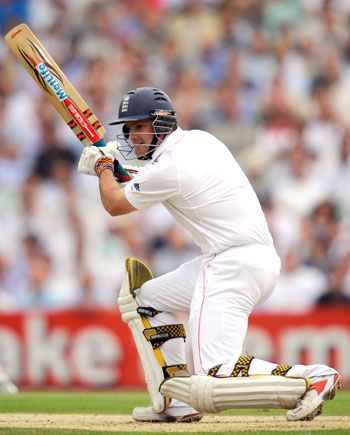
New Zealand was not the first-choice venue for Andrew Strauss to relaunch his England career after he was banished to the wilderness two years ago.
Strauss, omitted from the side to tour Sri Lanka in 2007, had planned to play in South Africa, the land of his birth 32 years ago.
Instead he ended up in the New Zealand North Island town of Hamilton and was playing for Northern Districts without much success when he got a break which illustrated the tissue-thin divide between success and failure in the life of an elite sportsman.
In his final innings for Northern Districts, Strauss lobbed the second ball to mid-on, "the easiest catch I have ever seen in my life."
To Strauss's astonishment the catch went down. His equally dumbfounded batting partner was run out while he watched in disbelief from the middle of the pitch.
Strauss went on to make a hundred which was to lead to his recall to the England team who were touring New Zealand early last year.
"It was in a losing cause, admittedly, but this innings set me on the road to recovery and redemption," he recorded in his new book Testing Times.
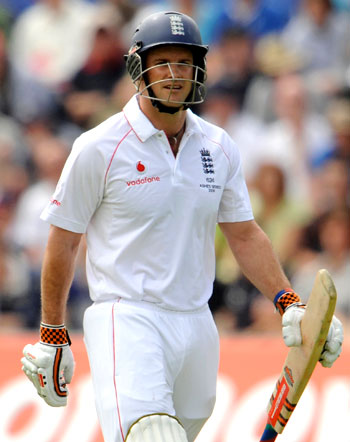
Further trials were to come.
New Zealand unexpectedly won the first Test and, although England bounced back by winning the second, Strauss's personal form was still unconvincing.
Before the second innings of the third Test, Strauss had not scored a century for 15 Tests.
For the first time in his life he had trouble sleeping, knowing another failure could mean the end of a Test career which had begun with a century against New Zealand at Lord's.
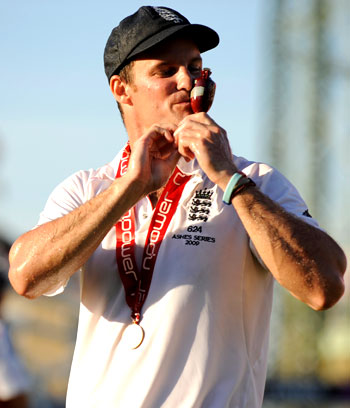
Strauss was distraught after making a duck in the first innings before showing his character and determination with 177 in a winning cause in the second which secured his place.
The subsequent 18 months have been a period of almost uninterrupted success for Strauss.
He has been fluent and prolific with the bat and, after he was elevated to the England captaincy this year, he led the team to victory against the odds in the Ashes series against Australia.
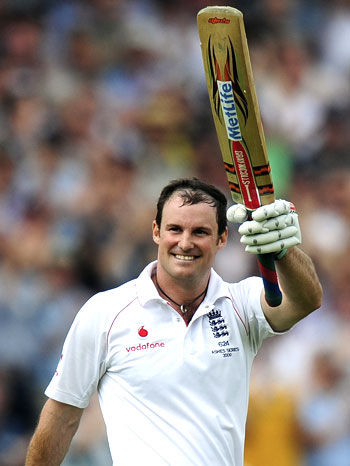
Talking to reporters at the launch of Testing Times, last week Strauss reflected on what had been in effect an enforced sabbatical and the power of positive thinking which helped him to recapture his England place.
"It was a chance for me to step back and assess over the last three or four years when I've been playing for England what was it that I have actually been doing well, what had contributed to me not playing well for England," he said.
"There were a number of things. One of them was a technical thing but a lot of it was a mindset thing and I think that was the biggest lesson I learned."
Strauss had already had a brief, successful stint as England captain, leading the team to victory over Pakistan in 2006 when Michael Vaughan and Andrew Flintoff were injured.
Flintoff returned to lead England in their 5-0 Ashes defeat in Australia in 2006-07.
Vaughan took charge again but struggled with declining form and a serious knee injury which contributed to his decision to resign the captaincy last year.
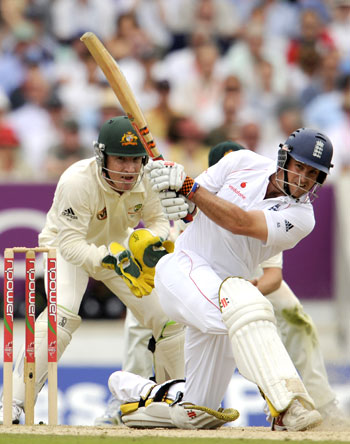
Kevin Pietersen's brief tenure as national captain ended in disarray when he resigned and head coach Peter Moores was sacked shortly before the tour of the Caribbean this year.
Strauss took over at short notice and, although England lost 1-0 after their batting collapsed in Jamaica, his form with the bat and the spirited fashion in which his side fought back after the first test defeat meant he was at last his country's first-choice skipper.
"While I was out of the side the big goal was to get back in and if I did to make sure I appreciated it and enjoyed it," Strauss said.
"The captaincy thing was something that looked as though it had passed me by. But even at the time you never knew what was around the corner.
Michael Vaughan was still captain but we all knew he didn't have a huge amount of time left.
"He probably went out sooner than we thought he would and you always know that the next captain is chosen on the basis of his own form, his place in the side as well as his ability to lead the team.
"I hadn't ruled it out completely in my mind but it just seemed a long way off."
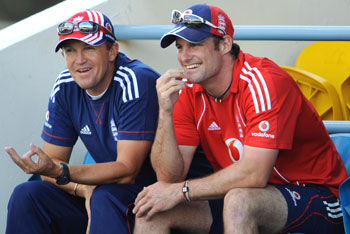
Now Strauss is a member of an elite group of captains who have regained the Ashes.
In the absence of the injured Pietersen, he has been England's best batsman and one of a rare group whose batting average increases rather than declines with the added responsibility of leadership.
Determined to avoid the euphoria which lingered too long after the 2005 Ashes win, Strauss and Moores's replacement, Zimbabwean Andy Flower, remain firmly rooted in reality.
"I think what Andy and I have tried to do as much as possible is be honest and so when we feel disappointed or let down we'll let the players know," Strauss said.
"I think we are at where the rankings say we are, five in the world in test cricket, below that in one-day cricket, so there's a lot of improvement required.
"I am very happy with the direction we are going in as a test side. There's a lot of scope for improvement but the way the guys stood up to pressure in the Ashes is very encouraging."